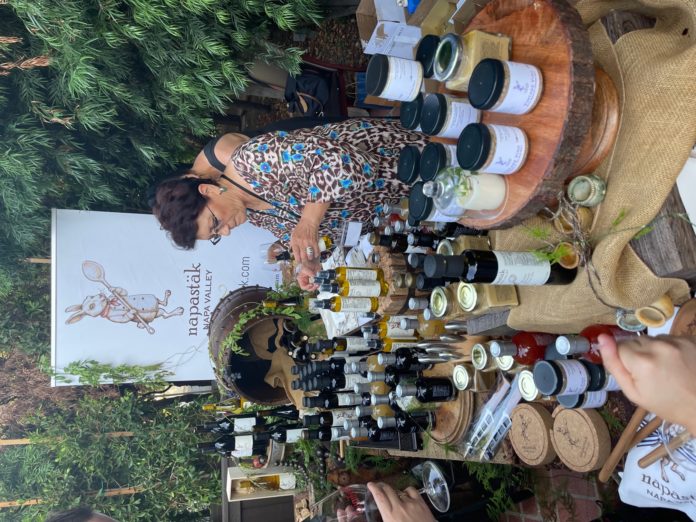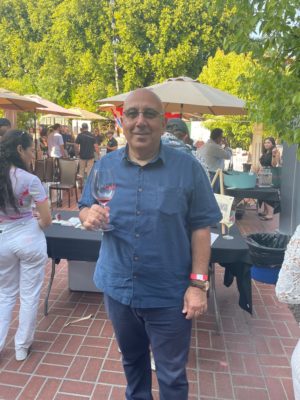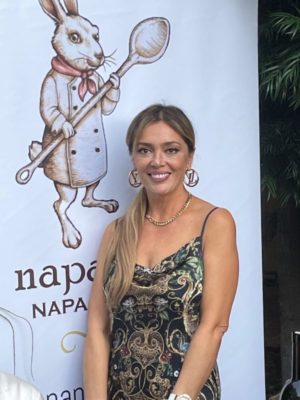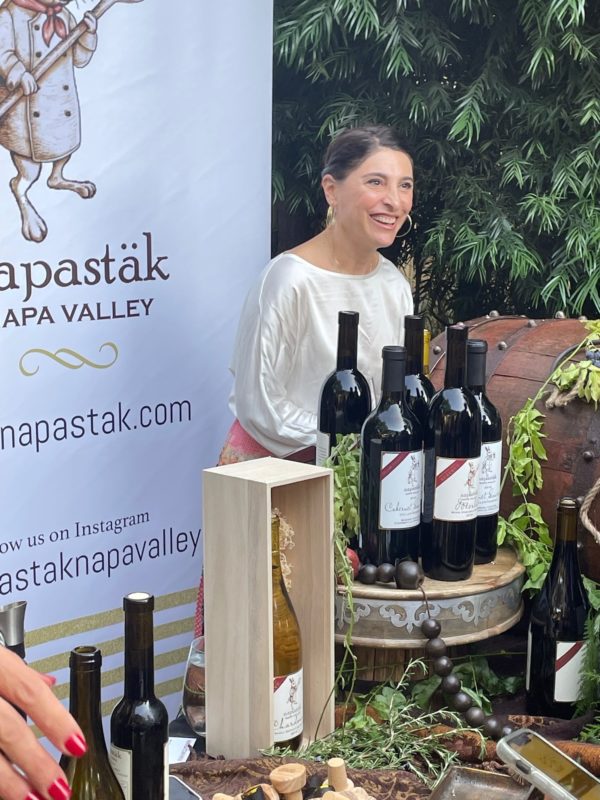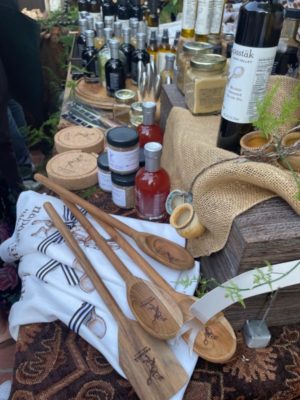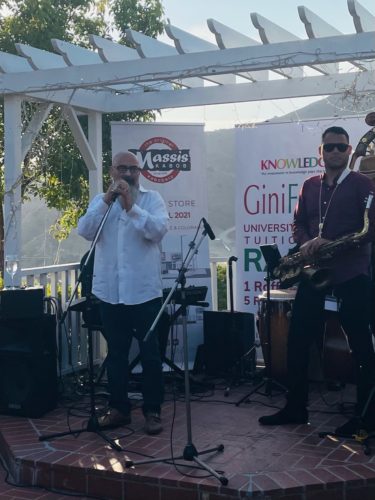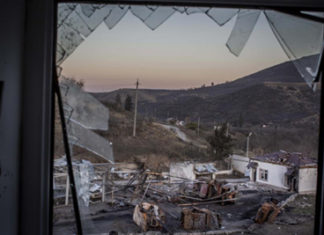BURBANK, Calif. – After rescheduling several times and instead holding virtual events, the team behind GiniFest was finally able to hold the third annual Armenian Wine and Spirits Festival in person on July 25. Tickets were sold out one week before the event. The outdoor patio of Castaway, a restaurant and event center in Burbank, CA, was transformed into a huge tasting center full of exquisite wines and spirits from Armenia and California. Winemakers were paired with stations serving cheese, fruits and snacks, sweets and pastries by various brands. All this delivered with live Armenian romantic songs and showcased artworks makes for a perfect Armenian event with a breathtaking view of Los Angeles.
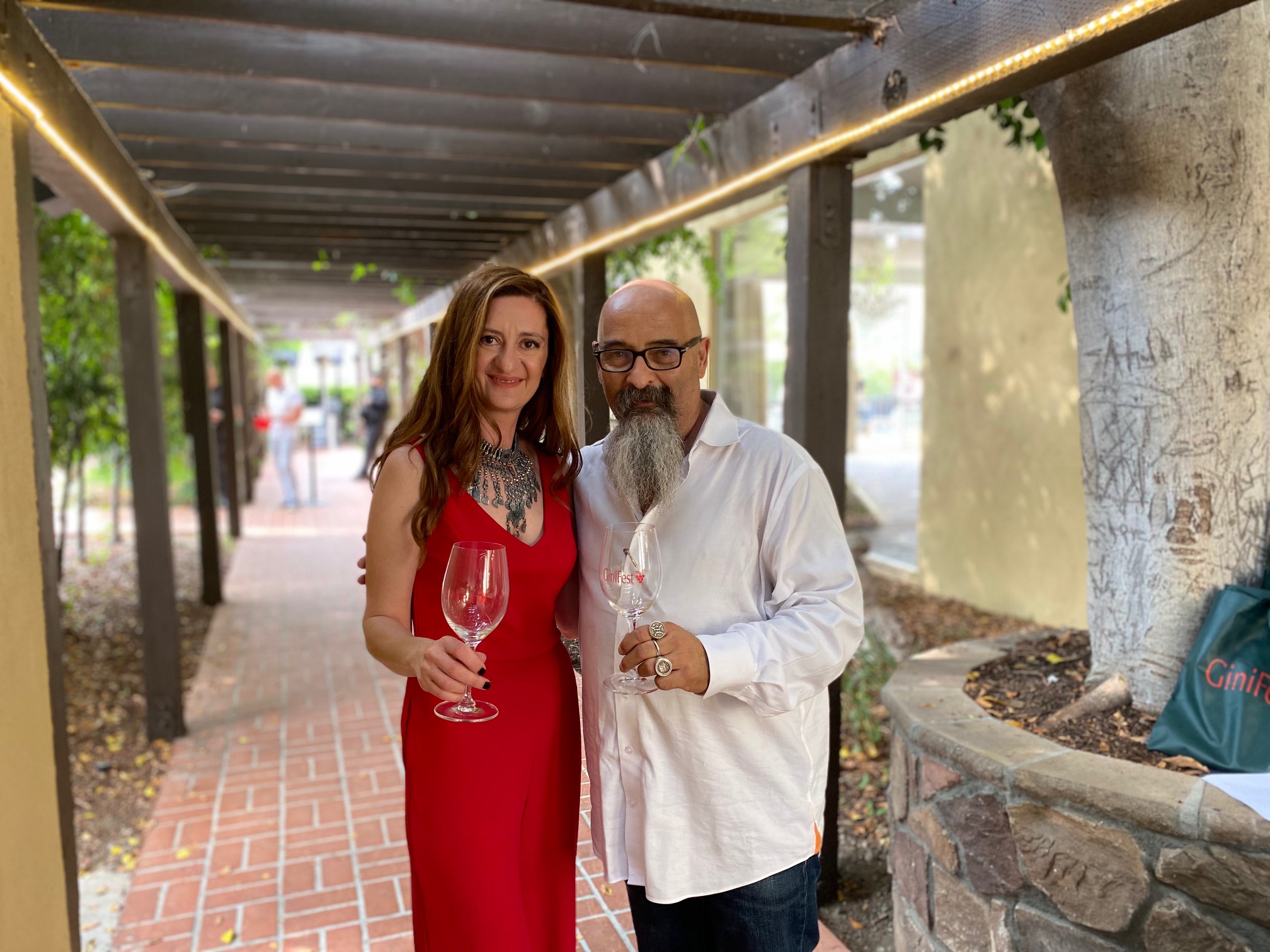
This year’s GiniFest is especially meaningful. Anush Gharibyan-O’Connor, the executive director of the festival, finds an empty chair inside the restaurant to rest her feet after a long but successful day and shares with me the stories of the hardship that the winemakers went through due to the COVID-19 pandemic and the war in Artsakh in 2020. She says: “The imports have been pretty much nonexistent, and consumption in Armenia was very low as well. Then, when they were coming finally out of COVID, the war hit. A lot of people who worked in wineries had to go and fight in the frontlines. And we, being here and introducing Armenian wine to non-Armenians, make people buy wine and get excited about wine, [which in turn] gives the opportunity to people [in Armenia] to make more wine and keep their jobs.”
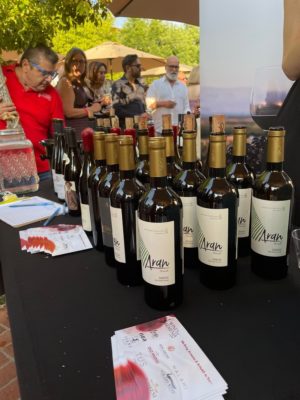
Due to the circulating new Delta variant, most of the winemakers from Armenia could not attend GiniFest. The importing and distributing companies took on their roles with the utmost responsibility. The festival made it possible for three wineries from Artsakh to present whatever product is left after November 9. Apris, Takri and Aran lost everything during the war in Artsakh.

Takri means roots in the Artsakh dialect. The biggest loss for the Kaprielian family was the loss of their employees of many years, young boys who perished during the war. In some ways, Takri is fortunate to have a factory in Stepanakert. The winery was in Banadzor village in Hadrut province which is now under the control of Azerbaijan. “We have now acquired new lands and we will start cultivating them. But unfortunately, the taste of Takri will not be the same,” Alexandra Kaprielian of Takri Wines observes with sadness.
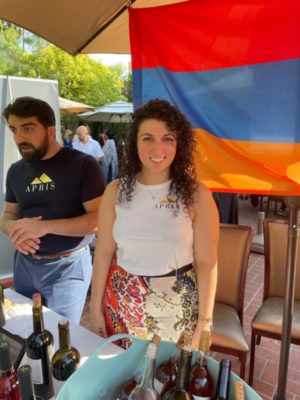
Emilia Bagdasarian of Apris Wines was presenting its 2018 vintage, the only wine that was saved. Over 50,000 bottles are estimated to be lost. All the white and rosé wines were bottled with corks in them and not labeled yet. Red wine was in the tanks and barrels. The vineyards of Sireni are the ones that are left in Martuni and Amaras, the area which is controlled by the Russian peacekeepers. Only with their support can the Bagdassarian family go and work there. She exclaims: “It’s very emotional and difficult. We are not going to be able to produce the same wine: Vines need a lot of care and attention. Since we’re not there every day, we’re unable to do this. However, when we are there, we are doing it with the best of our abilities. We may be able to have some sort of collection. We are more focusing on harvest and preservation.”
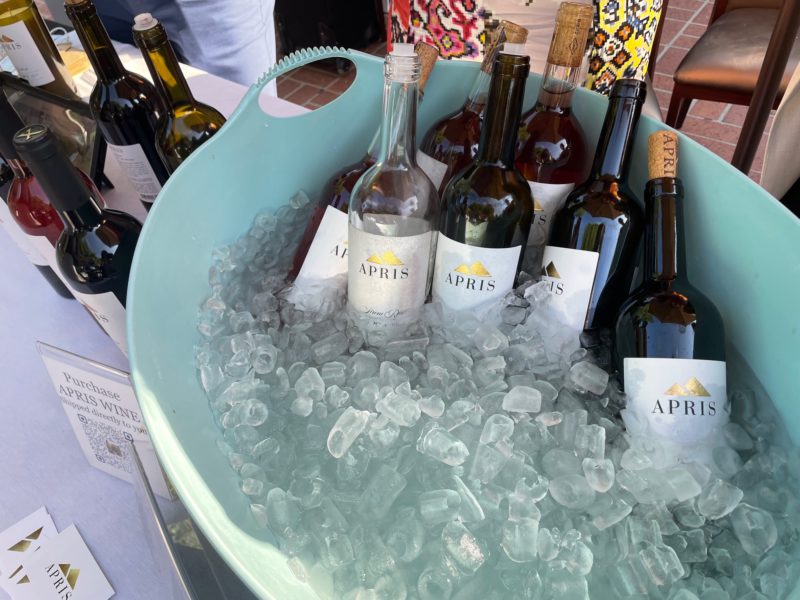
The family is in the process of rebuilding the brand in Armenia. They managed to bring over and replant some indigenous vines like Sireni and a few other grapes. For the Bagdasaryan family, Apris was a project of passion more than a business. Keeping people in Artsakh busy and giving them the opportunity to live and work in their motherland was and still is essential to Apris. “We have to keep going. If we don’t, there will be no opportunities,” Emilia adds.



